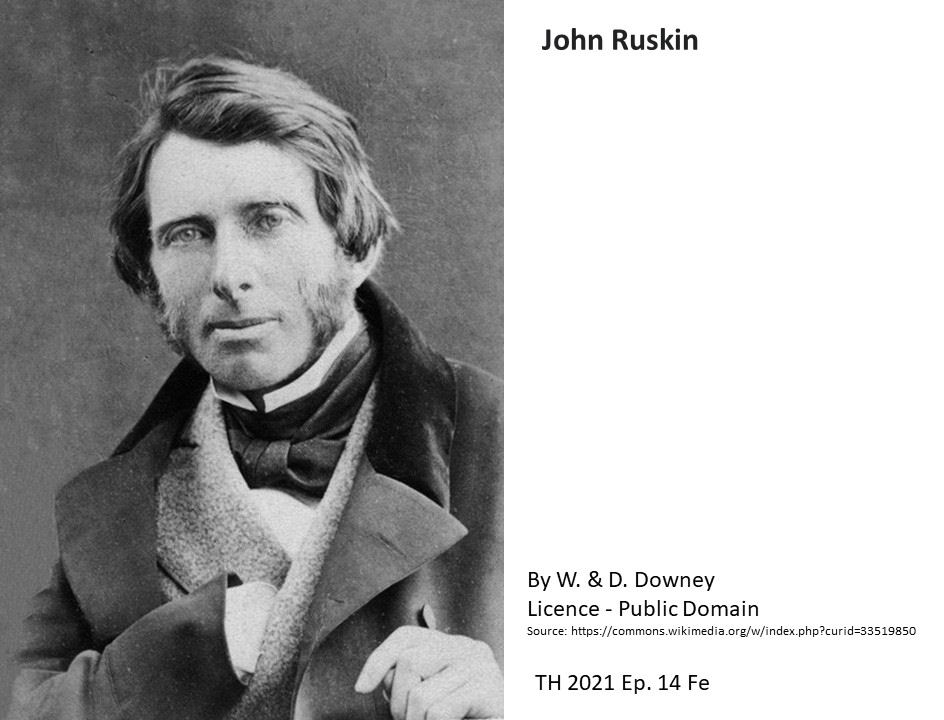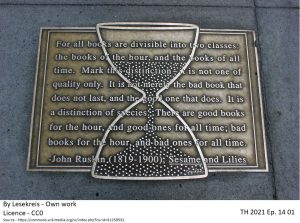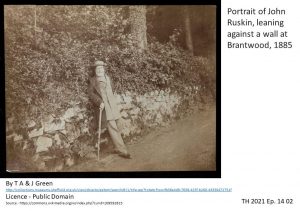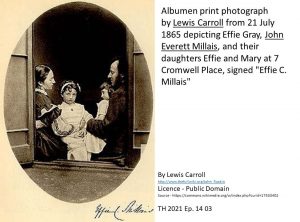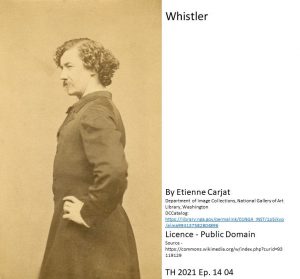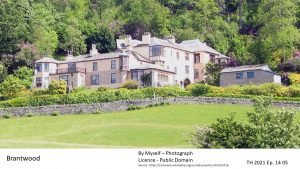Podcast: Play in new window | Download (Duration: 1:12:28 — 66.3MB)
Season 2021 – Talk 14 – John Ruskin
In his talk about John Ruskin Alan Freeland tells us the story of the life of this English writer, philosopher, art critic and polymath who lived in the Victorian era.
Click a thumbnail below to view the image gallery that accompanies the talk.
Early life:
Ruskin’s parents are first cousins and he is an only child. His father imports sherry and wine and is a founding partner and business manager of Ruskin, Telford and Domecq. Ruskin’s mother is the daughter of a publican in Croydon and first joins the household as companion to Ruskin’s grandmother.
He is born on 8 February 1819 in London. His father and mother shape his childhood with their contrasting, and ambitious, influences.
His father helps develop his Romanticism and they share a passion for the works of Byron, Shakespeare and Walter Scott whereas his mother is an evangelical Christian and teaches young John to read the Bible. He commits large portions to memory and the language, imagery and parables have a profound and lasting effect on his writing.
Ruskin’s childhood is spent near Camberwell and has few friends of his own age possibly because he is educated at home.
Travel:
Childhood travel exerts a great influence on Ruskin and helps form his taste. He sometimes accompanies his father on visits to clients at their country houses, which exposes him to English landscapes, architecture and paintings.
In 1835 he visits Venice for the first time which he calls that ‘Paradise of cities’. It provides the subject and symbolism of much of his later work.
These tours give Ruskin the opportunity to observe and record his impressions of nature. He writes elegant poetry and his early notebooks and sketchbooks are full of visually sophisticated and technically accomplished drawings.
Fame and influence:
As his influence grows he reaches a stage where he can affect the success of an artist and, because of this, he has a major disagreement with Whistler which results in a Court case.
Listen to the podcast and hear Alan tell the full story with readings of Ruskin’s work by Lorna Thomas and Charles Stuart.
Please note:
This podcast is a recording of a talk given on Zoom and there are occasion sound ‘glitches’.
About this podcast:
This podcast is an edited recording of a talk first given to the Farnham u3a World History Group.
The Farnham u3a site is found here.
You can also listen using Amazon Music, Apple Podcasts, Castbox , Deezer, Podchaser, Spotify, Stitcher and Vurbl and others.
AKM Music licenses Media Magazine for use as the theme music.
© The MrT Podcast Studio and Farnham u3a World History Group 2018 – 2022

